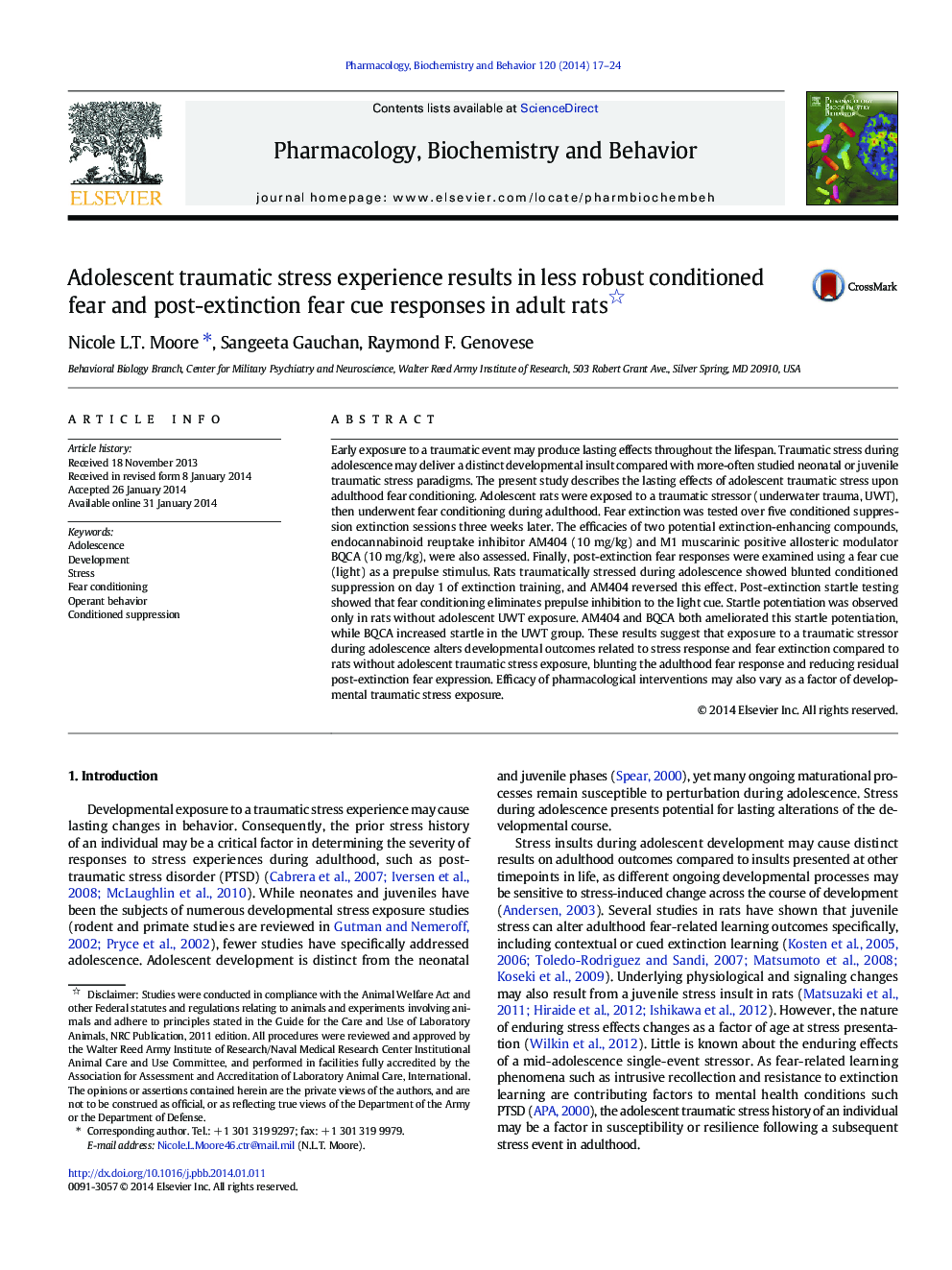| کد مقاله | کد نشریه | سال انتشار | مقاله انگلیسی | نسخه تمام متن |
|---|---|---|---|---|
| 2012934 | 1541864 | 2014 | 8 صفحه PDF | دانلود رایگان |
• Adolescent traumatic stress blunts adult fear conditioning neuroendocrine response.
• Adolescent traumatic stress blunts adult fear expression after classical conditioning.
• Adolescent traumatic stress blunts fear-potentiated startle after fear extinction.
• Developmental traumatic stress may modulate drug effects on fear extinction.
Early exposure to a traumatic event may produce lasting effects throughout the lifespan. Traumatic stress during adolescence may deliver a distinct developmental insult compared with more-often studied neonatal or juvenile traumatic stress paradigms. The present study describes the lasting effects of adolescent traumatic stress upon adulthood fear conditioning. Adolescent rats were exposed to a traumatic stressor (underwater trauma, UWT), then underwent fear conditioning during adulthood. Fear extinction was tested over five conditioned suppression extinction sessions three weeks later. The efficacies of two potential extinction-enhancing compounds, endocannabinoid reuptake inhibitor AM404 (10 mg/kg) and M1 muscarinic positive allosteric modulator BQCA (10 mg/kg), were also assessed. Finally, post-extinction fear responses were examined using a fear cue (light) as a prepulse stimulus. Rats traumatically stressed during adolescence showed blunted conditioned suppression on day 1 of extinction training, and AM404 reversed this effect. Post-extinction startle testing showed that fear conditioning eliminates prepulse inhibition to the light cue. Startle potentiation was observed only in rats without adolescent UWT exposure. AM404 and BQCA both ameliorated this startle potentiation, while BQCA increased startle in the UWT group. These results suggest that exposure to a traumatic stressor during adolescence alters developmental outcomes related to stress response and fear extinction compared to rats without adolescent traumatic stress exposure, blunting the adulthood fear response and reducing residual post-extinction fear expression. Efficacy of pharmacological interventions may also vary as a factor of developmental traumatic stress exposure.
Journal: Pharmacology Biochemistry and Behavior - Volume 120, May 2014, Pages 17–24
